Discover Environment
Environment

Environment
Author: NPR
Subscribed: 12,412Played: 831,139Subscribe
Share
© Copyright 2024 NPR - For Personal Use Only
Description
Breaking news on the environment, climate change, pollution, and endangered species. Also featuring Climate Connections, a special series on climate change co-produced by NPR and National Geographic.
1348 Episodes
Reverse
Last year, we reported how extreme weather events may be dwindling the future of chocolate. Just last week, we saw an inkling of that: The Hershey Company announced it would significantly raise the cost of its candy in the face of historically high cocoa prices. So, we're revisiting host Emily Kwong's conversation with Yasmin Tayag, a food, health and science writer at The Atlantic. They get into the cocoa shortage: What's causing it, how it's linked to weather and poor farming conditions and what potential solutions exist. Plus, they enjoy a chocolate alternative taste test.Learn more about sponsor message choices: podcastchoices.com/adchoicesNPR Privacy Policy
Mermaids, giants and huge eyes look up from the waters near Talamone, Italy. It's one fisherman's way of protecting fishing grounds from the damage of trawling nets. Artists' sculptures are sunk to the bottom of the Mediterranean sea along with concrete blocks to break the nets of the trawlers that devastate marine life.Learn more about sponsor message choices: podcastchoices.com/adchoicesNPR Privacy Policy
Much of the country is deep in the middle of a heat wave right now. And every summer, Duane Stilwell's town in Arizona seems to get hotter. It has him worried — and he's not the only one. Since 1980, the average number of heat waves in the U.S has doubled and the average length of a heat wave season has increased from 40 days to 70. Future summers, experts say, will be even hotter. But why exactly is that happening, and what can people do to protect themselves from the heat?This episode is part of Nature Quest, a monthly segment that answers listeners' questions about their local environment. If you have a question, send a voice memo to shortwave@npr.org that includes it, your name and where you live. We might make it into our next Nature Quest episode!Listen to every episode of Short Wave sponsor-free and support our work at NPR by signing up for Short Wave+ at plus.npr.org/shortwave.Learn more about sponsor message choices: podcastchoices.com/adchoicesNPR Privacy Policy
The twilight zone of the ocean is a mysterious place. At 200-1000 meters below the surface, it's a tough place to study. That's why, during World War II, people reading sonograms from this zone were perplexed when it looked as if the ocean floor was moving up. Every day. And then back down again before dawn. In this latest installment of Sea Camp, we explore what this historical mystery has to do with the Earth's ability to cycle and store carbon in the ocean's watery depths.SIGN UP FOR OUR SEA CAMP NEWSLETTER! WE WORKED SO HARD ON IT!Interested in more ocean mysteries? Let us know at shortwave@npr.org.Listen to every episode of Short Wave sponsor-free and support our work at NPR by signing up for Short Wave+ at plus.npr.org/shortwave.Learn more about sponsor message choices: podcastchoices.com/adchoicesNPR Privacy Policy
For this week's Sea Camp, we're diving below the ocean's surface to explore the sunlight zone, the portion of ocean that's 0-200 meters deep. Here, we zoom in on some spineless inhabitants envied for their "superpowers." Marine biologist Drew Harvell tells us about stealthy sea slugs, sea stars with super strength and life-saving sponges. Also, exciting news!! WE HAVE A NEWSLETTER! It lets you go even deeper with the marine research each week of Sea Camp. Sign up here!Plus, check out the comic we commissioned to accompany this episode!Want to hear more stories about underwater marvels? Email us and let us know at shortwave@npr.org.Listen to every episode of Short Wave sponsor-free and support our work at NPR by signing up for Short Wave+ at plus.npr.org/shortwave.Learn more about sponsor message choices: podcastchoices.com/adchoicesNPR Privacy Policy
China has nearly cornered the market in rare earth minerals, which are a necessary component to much of our technology today. But China sources some of those rare earths and other heavy metals from neighboring Myanmar. And the ramped up in production there is causing downstream environmental concerns in Thailand. We go to Thailand to understand the issue.Learn more about sponsor message choices: podcastchoices.com/adchoicesNPR Privacy Policy
For this second installment of the Sea Camp series, we explore the Great Pacific Garbage Patch. It's the largest of five gigantic garbage patches in the sea. These patches hang out at the nexus of the world's ocean currents, changing shape with the waves. These areas were long thought to have been uninhabited, the plastics and fishing gear too harmful to marine life. But researchers have uncovered a whole ecosystem of life in this largest collection of trash. Today, with the help of marine biologist Fiona Chong, we meet the tiny marine life that calls this place home.Also, exciting news!! WE HAVE A NEWSLETTER! It lets you go even deeper with the marine research each week of Sea Camp. Sign up here!Interested in hearing more sea stories? Tell us by emailing shortwave@npr.org!Listen to every episode of Short Wave sponsor-free and support our work at NPR by signing up for Short Wave+ at plus.npr.org/shortwave.Learn more about sponsor message choices: podcastchoices.com/adchoicesNPR Privacy Policy
All across the U.S., there are aging oil and natural gas wells no longer in use.A lot of them don't have anyone on the hook to seal them up. Some estimate over a million such "orphan wells" still exist.Because they haven't been plugged, they're still leaking greenhouse gases and other chemicals into the atmosphere and into the land around them.What would it take to plug them — or even just one of them?For sponsor-free episodes of Consider This, sign up for Consider This+ via Apple Podcasts or at plus.npr.org.Email us at considerthis@npr.org.Learn more about sponsor message choices: podcastchoices.com/adchoicesNPR Privacy Policy
It's been nearly a week since devastating flooding tore through Kerr County, Texas killing more than a hundred people.Now, after unimaginable tragedy, residents are coming together to help each other move forward.NPR's Juana Summers and producers Erika Ryan and Tyler Bartlam visited the City West Church, which has transformed from a house of worship into a pop up food distribution site serving thousands of meals to the community and first responders.For sponsor-free episodes of Consider This, sign up for Consider This+ via Apple Podcasts or at plus.npr.org.Email us at considerthis@npr.org.Learn more about sponsor message choices: podcastchoices.com/adchoicesNPR Privacy Policy
Short Wave producer Hannah Chinn has adult-onset eczema. They're not the only one. Up to ten percent of people in the United States have it, according to the National Eczema Association — and its prevalence is increasing. Despite its ubiquity, a lot about this skin condition remains a mystery. So today, Hannah's getting answers. In this encore episode, they sat down with Raj Fadadu, a dermatologist at the University of California, San Diego, to ask: What is eczema? What triggers it in the first place? And might climate change make it worse sometimes?If you liked this episode, check out our episode on the science of itchiness. Also, follow us! That way you never miss another episode.Interested in hearing more about climate change and human health? Email us at shortwave@npr.org — we'd love to hear your feedback!Listen to every episode of Short Wave sponsor-free and support our work at NPR by signing up for Short Wave+ at plus.npr.org/shortwave.Learn more about sponsor message choices: podcastchoices.com/adchoicesNPR Privacy Policy
A warming climate doesn't just affect dry land — it affects the ocean, too. For years, Earth's ocean has acted as a heat sink for climate change: A large part of the heat generated by human use of fossil fuels is being absorbed by the ocean. And while the deep sea is largely unaffected by this heat absorption, oceanographers have discovered that the upper ocean currents are accelerating. That acceleration has the potential for huge knock-on effects, including sea level rise, changing fish migration cycles, shifting storm patterns, and more.This is the first episode of Sea Camp, Short Wave's summer series exploring the intriguing and otherworldly depths of the ocean. Follow us every Monday through August as we travel from the sunlit zone to the sea floor.Interested in more stories about the ocean? Email us your question at shortwave@npr.org.Listen to every episode of Short Wave sponsor-free and support our work at NPR by signing up for Short Wave+ at plus.npr.org/shortwave.Learn more about sponsor message choices: podcastchoices.com/adchoicesNPR Privacy Policy
Mosquitoes are the deadliest animal on the planet, and some of them may be on the rise. At least in listener Abigail Krich-Starr's area, that's due to warmer, wetter weather — which, yes, is linked to climate change. But it doesn't stop there: Ecologists and entomologists say increased heat could also alter mosquito behavior, shift their natural habitat, and even change how pathogens incubate and spread inside their bodies.So how do you protect yourself against the (mosquito) masses? Our experts suggested several things:- Assess your risk by checking local mosquito surveillance efforts, like this one for the state of Massachusetts- Consider rescheduling outdoor events happening between dusk and dawn, which is peak biting time for multiple mosquito species- Wear long-sleeved shirts and pants, weather-permitting, to limit exposed skin- Use an EPA-approved DEET repellent, and/or a permethrin spray for clothing and outdoor gearThis episode is part of Nature Quest, a monthly Short Wave segment that answers listener questions about the local environment.Got a question about changes in your local environment? Send a voice memo to shortwave@npr.org with your name, where you live and your question. We might make it into our next Nature Quest episode! Listen to every episode of Short Wave sponsor-free and support our work at NPR by signing up for Short Wave+ at plus.npr.org/shortwave.Learn more about sponsor message choices: podcastchoices.com/adchoicesNPR Privacy Policy
Homeowners' insurance isn't just getting more expensive ... it's also getting harder to secure in the first place. Across the country, an increase in climate-related disasters like heat waves, wildfires and hurricanes is creating challenges for both insurers and their customers. One successful strategy taking hold in Alabama and other states: Climate-proofing houses — and incentivizing it with insurance discounts.Still, not all states or homeowners face similar risks. And insurers aren't legally required to take climate-proofing into account when assessing the insurability of a home. That's why states are experimenting with different programs — and insurance legislation — to find a solution.This episode is part of NPR's Climate Solutions Week: a series of stories covering real world solutions for building, and living, on a hotter planet.Learn more about sponsor message choices: podcastchoices.com/adchoicesNPR Privacy Policy
Whether it was her history making win in 2017.Or the history she made as only the second woman elected to lead a country to give birth while IN office.Or her decision to step away from power after leading New Zealand through crisis after crisis.Jacinda Ardern could never be described as a TYPICAL politician. But perhaps the most norm-busting feature of her time as Prime Minister was her rejection of the old ways of leadership.Now as she reflects on her time as Prime Minister of New Zealand Ardern is emphasizing the need to lead with kindness and empathy. For sponsor-free episodes of Consider This, sign up for Consider This+ via Apple Podcasts or at plus.npr.org. Email us at considerthis@npr.org.Learn more about sponsor message choices: podcastchoices.com/adchoicesNPR Privacy Policy
Gen Z and younger millennials are the most climate literate generations the world has ever seen. They learned about climate change in school; now, it's part of how they plan for the future, including for jobs, housing ... and kids.So, what do experts say about how to navigate the kid question? In this installment of Nature Quest, Short Wave speaks to climate journalist Alessandra Ram about the future she sees for her newborn daughter. Plus, how do we raise the next generation in a way that's good for the planet? Resources discussed in this episode include:Jade Sasser's book, Climate Anxiety and the Kid QuestionKimberly Nicholas's High Impact Climate Action GuideElizabeth Bechard's book, Parenting in a Changing ClimateThe Climate Mental Health Network's Climate Emotions WheelGot a question about changes in your local environment? Send a voice memo to shortwave@npr.org with your name, where you live and your question. You might make it into our next Nature Quest episode!Learn more about sponsor message choices: podcastchoices.com/adchoicesNPR Privacy Policy
The Trump administration is rewriting policies and reducing funding for multiple agencies that handle climate change, including NOAA, EPA and FEMA. We asked NPR reporters Lauren Sommer and Alejandra Borunda what that the implications of that are — and who the changes will affect.Want to hear more ways research is being impacted by the new administration? Email us at shortwave@nprg.org to let us know — and we may cover your idea in a future episode!Listen to every episode of Short Wave sponsor-free and support our work at NPR by signing up for Short Wave+ at plus.npr.org/shortwave.Learn more about sponsor message choices: podcastchoices.com/adchoicesNPR Privacy Policy
Google, Microsoft and Meta have all pledged to reach at least net-zero carbon emissions by 2030. Amazon set their net-zero deadline for 2040. To understand how these four tech companies could possibly meet their climate goals amid an artificial intelligence renaissance, Short Wave co-host Emily Kwong discusses the green AI movement. Speaking with scientists, CEOs and tech insiders, she explores three possible pathways: nuclear energy, small language models (SLMs) and back-to-the-future ways of keeping data centers cool. Listen to Part 1 of Short Wave's reporting on the environmental cost of AI here. Have a question about AI and the environment? Email us at shortwave@npr.org — we'd love to hear from you!Listen to every episode of Short Wave sponsor-free and support our work at NPR by signing up for Short Wave+ at plus.npr.org/shortwave.Learn more about sponsor message choices: podcastchoices.com/adchoicesNPR Privacy Policy
By 2028, Lawrence Berkeley National Laboratory forecasts that U.S. data centers could use as much as 12% of the nation's electricity. The reason: generative AI. Since 2022, AI innovation by four leading tech companies — Google, Microsoft, Meta and Amazon — has led to annual increases in both energy and water consumption. So, in this episode, Short Wave co-host Emily Kwong probes huge water footprint of AI. We begin with the rise of data centers, then look at how computers came to need so much water and, finally, what tech companies are doing to try to turn the ship around. P.S. Part 2 talks about the leading solutions in the green AI movement. So don't miss our Friday episode! Curious about tech and the environment? Email us at shortwave@npr.org — we'd love to hear from you! Listen to every episode of Short Wave sponsor-free and support our work at NPR by signing up for Short Wave+ at plus.npr.org/shortwaveLearn more about sponsor message choices: podcastchoices.com/adchoicesNPR Privacy Policy
From starfish and sea slugs to jellyfish and sponges, the ocean's invertebrates are some of the most ancient and diverse critters on Earth. And so are their superpowers, as marine biologist Drew Harvell calls their unique abilities. In her new book, The Ocean's Menagerie, she chronicles the amazing abilities of some of these spineless creatures and showcases how they've inspired our science and medicine. Listen to our past episode on nudibranchs — the potent slugs of the sea — HERE.Want to hear more stories about underwater marvels? Email us and let us know at shortwave@npr.org.Listen to every episode of Short Wave sponsor-free and support our work at NPR by signing up for Short Wave+ at plus.npr.org/shortwave.Learn more about sponsor message choices: podcastchoices.com/adchoicesNPR Privacy Policy
A fish walks into a pharmacy ... well, not exactly. Fish aren't being prescribed anti-anxiety drugs. But they are experiencing the effects. Researchers have found more than 900 different pharmaceutical ingredients in rivers and streams around the world, though they're not yet sure how this could change the behavior of fish and other aquatic animals in the wild."We can't, you know, dump a bunch of pharmaceuticals into the river," says Jack Brand, biologist at the Swedish University of Agricultural Sciences. Instead, Jack's team did the next best thing – with some surprising results.This episode was reported by NPR science correspondent Jon Lambert. Check out more of his reporting.Want to hear more stories about animal behavior? Email us and let us know at shortwave@npr.org.Listen to every episode of Short Wave sponsor-free and support our work at NPR by signing up for Short Wave+ at plus.npr.org/shortwave.Learn more about sponsor message choices: podcastchoices.com/adchoicesNPR Privacy Policy




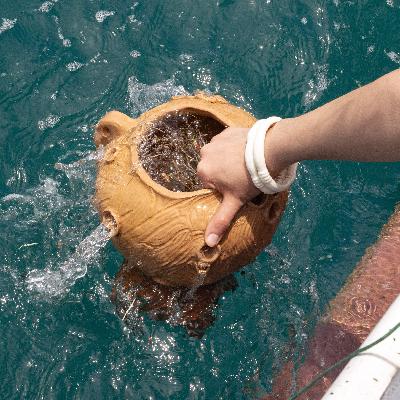

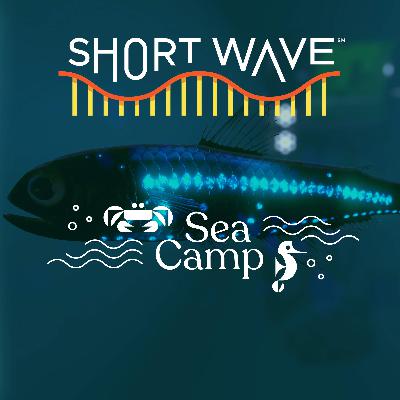
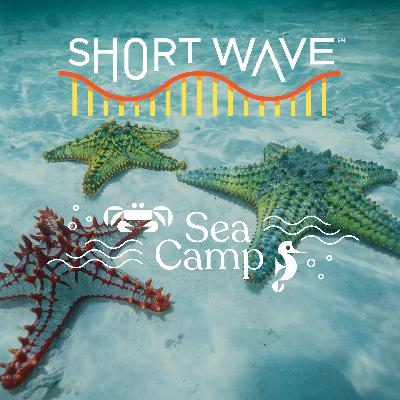
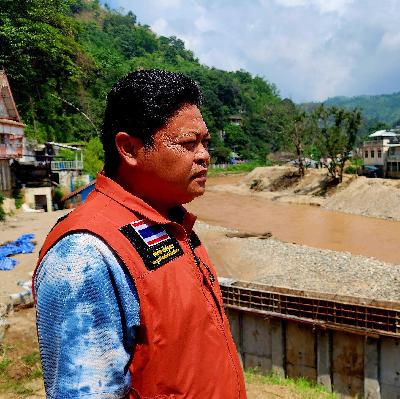
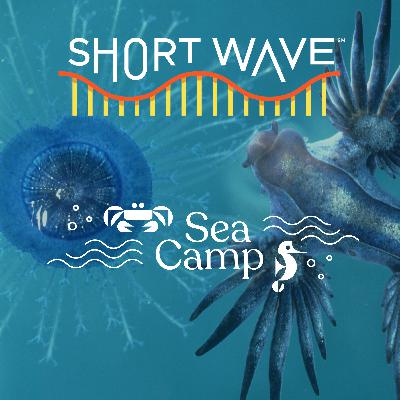
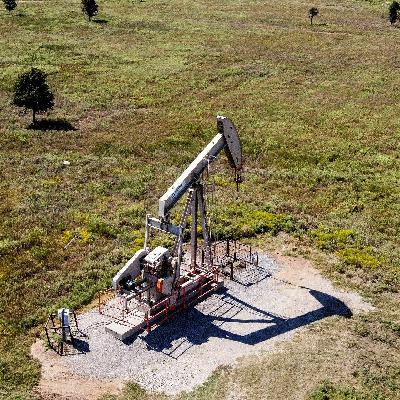
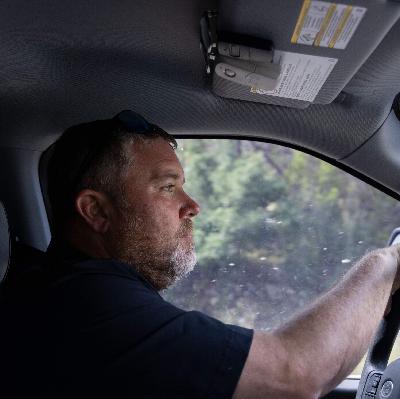

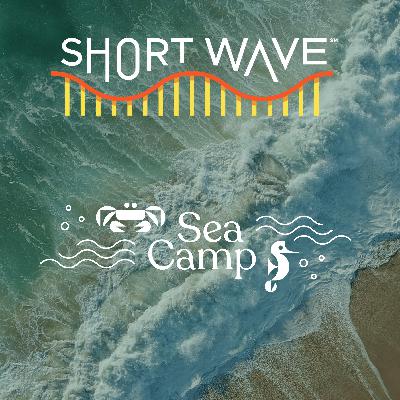
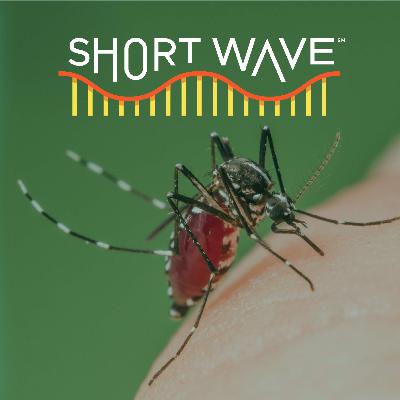
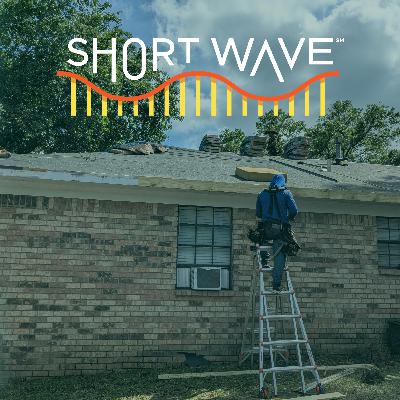


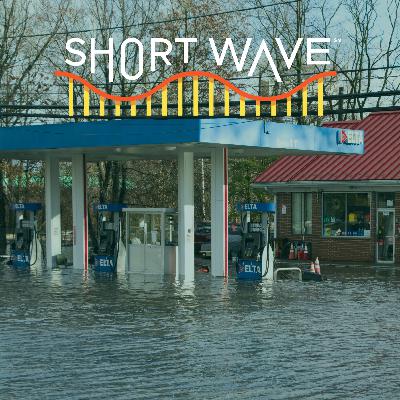


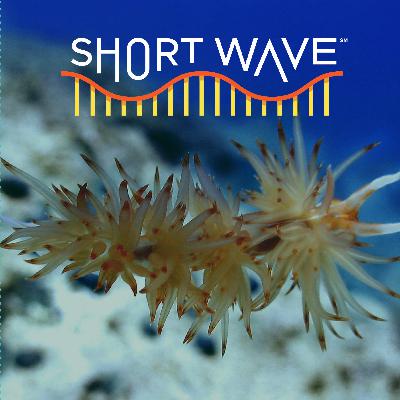
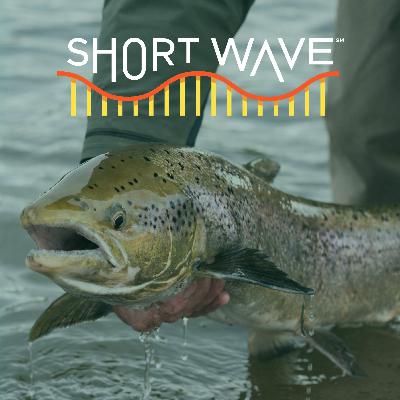



ALL>FUL>MOVIES>LINK👉https://co.fastmovies.org
the Persian Gulf
viva o pirarucu! salve salve! que o trabalho das reservas possa continuar cuidando das populações de pirarucu e de todes!
it's seriously insane the level of waste (of all kinds of (even good) stuff! has to be talked about and acted upon BY EVERYONE❣🌏🌏🌎🌕🌖🌗🌘🌑🌓🌔♥🖤💜💙💚💛🧡❤
Prayers move mountains, buddy 🤷🏻♀️
"no one's taking away your meat" with any luck, yes we will! the meat industry is horrible.
hope this turns out right!
freshair hookworm
such important work
that was great, thanks
Apathy and Denial ain't a way forward. First rule of holes, is STOP digging. (^^,) And clearly the GPO and the big Corporations don't have any intention to going in that direction for a long time, there isn't any profit in it for them. Ask anyone who builds or creates for a living, and they will tell you that having the right tool for the job will yield better results and make your life much easier. Whether you are making a pie, or working on a car, this advice will always hold true. We also have to find the right persons for the job as well. Luckily there's grassroots and local communities and the Green New Deal struggling to get up and forward. Any individual can also do a great deal. (^^,) So get to work. Never be afraid to try, or learn, something new.!. Remember: Amateurs built the ark. Professionals built the Titanic.
serious questions.
stop single use plastic!
some people have a clue..
almost like romanticizing California as this untouchable paradise was always silly...
unacceptable
and I've been wanting to live I a motor home for a while-and now the market is inflated and I'm... not with it!
wow
that's really serious!
Trump is making America a (corporate) SWAMP again.